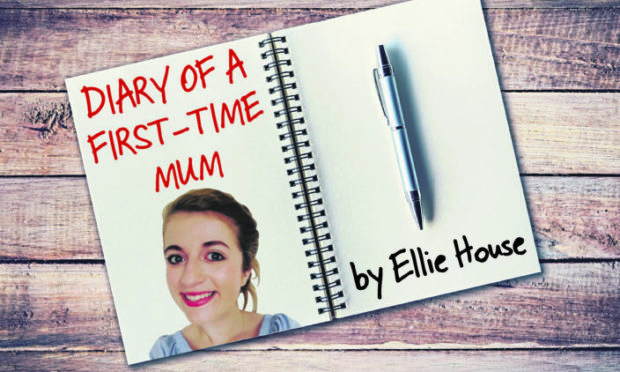My son was three days old when I experienced my first Mother’s Day.
We had been home less than 24 hours, and I remember feeling completely terrified.
I had read dozens of books during pregnancy, there was nothing I didn’t know about bringing up a baby.
The correct temperature for bath water, how to swaddle, the dos and don’ts of weaning.
I had practically memorised it chapter by chapter, but my knowledge seemed to crumble in the face of reality.
The realisation that I had no clue what I was doing left me feeling as helpless as my newborn.
Two years on and I now know that motherhood can’t be taught.
It is an instinct, a hope – that we must somehow be getting it right.
Adoption, surrogacy, regardless of how we come to be mothers, we are all muddling through.
No matter how much I thought I knew, it crumbled into dust almost from the moment the first contraction took hold.
I told everyone I was going to have a water birth.
It would be calm and peaceful, candles would be flickering and I would be in complete control.
Both my mum and mother-in-law looked at me somewhat pityingly when I presented them with my birth plan, complete with a laminated folder.
They knew better.
I recall pausing in between contractions in the hospital corridor, wearing a gown and my ankle boots – because an emergency induction meant I didn’t even have slippers to hand.
I screamed for an epidural, and my other half had a nosebleed midway through the birth – much to my irrational annoyance.
That first Mother’s Day, everything felt so raw and bewildering.
A bunch of flowers arrived on the doorstep, with a tag which read “from one mother to another”.
The kind gesture was from my own mum, an acknowledgement that I was now part of the club.
Mothers are often placed on an impossible pedestal; it is assumed that we have all the answers.
Our kisses can stop tears and we always know what to do in a crisis.
We soothe nightmares, make perfect sandwiches and are cheering the loudest at sports day.
Whilst my son, who is now two, offers his sore knees with demands for “kissie” at every opportunity, I must confess to being an imposter though.
For having become a parent myself, my need for my own mum seemed to magnify.
She would surely know what to do by default, because she was a mother.
I wasn’t aware of the irony, in placing her against a stereotype which I was struggling to match.
Rewind 50 years, and new mothers were often surrounded by a steadfast support network.
The matriarchy of grandmothers, aunties, best friends who lived a few doors down.
But as families scatter across the country and even the globe, mothers often have nowhere to turn.
A baby group perhaps, or the judgmental depths of the internet.
Mothers, particularly first-time mums, still need their own mums for guidance, for love.
We still need someone to tell us we’re doing a good job, that we’re getting it right.
My mother-in-law has given me invaluable support from day one, and recently left a bottle of wine in my fridge as a silent nod that it was needed.
There has been role reversal with my own mum, as the circle of life seems to dictate.
Having lost my dad almost one year ago, she is now in need of more help, advice and understanding.
It strikes me that no matter how old we are, we never truly stop needing our mum.
I am ready for cold toast and spilt orange juice this Mother’s Day, a breakfast which only a toddler can deliver.
Whilst we must celebrate the triumphs of motherhood, it is perhaps time to drop the superwoman tag.
Mothers can be fierce and determined, and unwavering in our love.
But it is also OK to be vulnerable, to be really quite tired and fed up.
To be bored of playing hide and seek, or secretly reluctant to read one more story.
We may be bringing up the next generation, but we are also human.
We make mistakes and second guess ourselves, before asking our own mums what to do.
From one mother to another, happy Mother’s Day.
